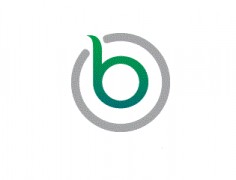Do you know zilch about zinc? Let’s rectify that, as this essential trace element is vital to your health and well-being. According to some reports, as many as 12% of Americans may have a zinc deficiency, a figure that may rise to as much as 45% in people over age 60. Among the important functions of zinc in our bodies — it boosts the immune response… protects cell membranes from harmful oxidants and structural damage… repairs DNA… and supports nearly 100 different enzymes that regulate the chemistry of cells and organisms.
Regular Daily Health News contributor Mark Stengler, NMD, told me that zinc is also helpful in stabilizing blood glucose… contributes to neurological function… and helps the formation of testosterone, thereby potentially boosting sexual function. (So the reputation of oysters as an aphrodisiac has a scientific basis — they have more zinc than any other food.) And, of particular interest to the older population, says Dr. Stengler, is that zinc helps prevent or reduce the damage of age-related macular degeneration, a leading cause of blindness in adults over age 60.
Why Do We Lack Zinc?
Our ability to absorb zinc may decline with age. On top of that, many older folks take medications known to deplete zinc, in particular thiazide diuretics and ACE inhibitors (used to control blood pressure) and acid-suppressing medications. Additionally, having a digestive disorder that prevents proper nutrient absorption — such as irritable bowel syndrome (IBS) or Crohn’s disease — can contribute to deficiency. And since animal products are a primary source of zinc, eating a vegetarian diet can also mean that you don’t get enough.
With so many people at risk, you’d think there would be good tests to measure zinc levels, but alas, the only ones available are not sensitive enough to be useful — so it is important to be aware of deficiency symptoms. Severe deficiency causes severe problems (such as rashes, chronic diarrhea and night blindness), but that’s rare in developed countries. Lower level deficiency is far more common, but its symptoms can be troublesome, too — including depression, a loss of appetite and libido, and frequent colds and other infections.
Zinc and Colds
When you get a cold or respiratory infection, supplementing with zinc can help relieve your sore throat and shorten your suffering, a benefit that has been demonstrated in many studies. This has made zinc-based cold fighters, including the Zicam Cold Remedy line, quite popular. There was considerable concern last year when the FDA issued a warning about use of Zicam products delivered nasally (its gels and sprays). These are no longer being sold, and according to Dr. Stengler, Zicam lozenges are safe (a daily dose — six lozenges — has 80 mg of elemental zinc). Dr. Stengler likes even better lozenges that contain 15 mg to 25 mg of elemental zinc, and in particular the brands Bluebonnet and LifeExtension. At the first sign of a cold, have one every two hours away from meals, since zinc supplementation may also interfere with the absorption of iron and calcium, and competes with copper for uptake from the gut. Note: Zinc may hinder absorption of antibiotics, so if you’re on them, be sure to use it at least two hours before or after the time you take the drug.
For Health in General
The zinc Recommended Daily Allowance is 11 mg a day for men and 8 mg for women. You can obtain this much from food (see below), but if you have signs of deficiency or are not eating a zinc-rich diet, Dr. Stengler says 15 mg per day is generally a good supplemental dose. The upper limit for a zinc supplement is 40 mg — too much zinc has been associated with prostate cancer. Pregnant and nursing women should not take zinc unless instructed to do so by a doctor.
Zinc-rich foods include…
- Beef
- Crab
- Turkey
- Oysters
- Liver
- Dairy including milk, yogurt and cheddar cheese
- Cashews, almonds, peanuts
- Crimini mushrooms
- Spinach
- Pumpkin seeds
For most people at most times, he says, eating a varied, healthful diet and taking a daily multivitamin with zinc should be sufficient to prevent deficiency.
Source(s):
Mark A. Stengler, NMD, a naturopathic medical doctor and leading authority on the practice of alternative and integrated medicine. He is editor of Bottom Line’s Natural Healing newsletter, author of The Natural Physician’s Healing Therapies (Bottom Line Books), director of the La Jolla Whole Health Clinic in La Jolla, California, and adjunct clinical professor at the National College of Natural Medicine in Portland, Oregon. To learn more about his work, visit www.drstengler.com and www.lajollawholehealth.com.
